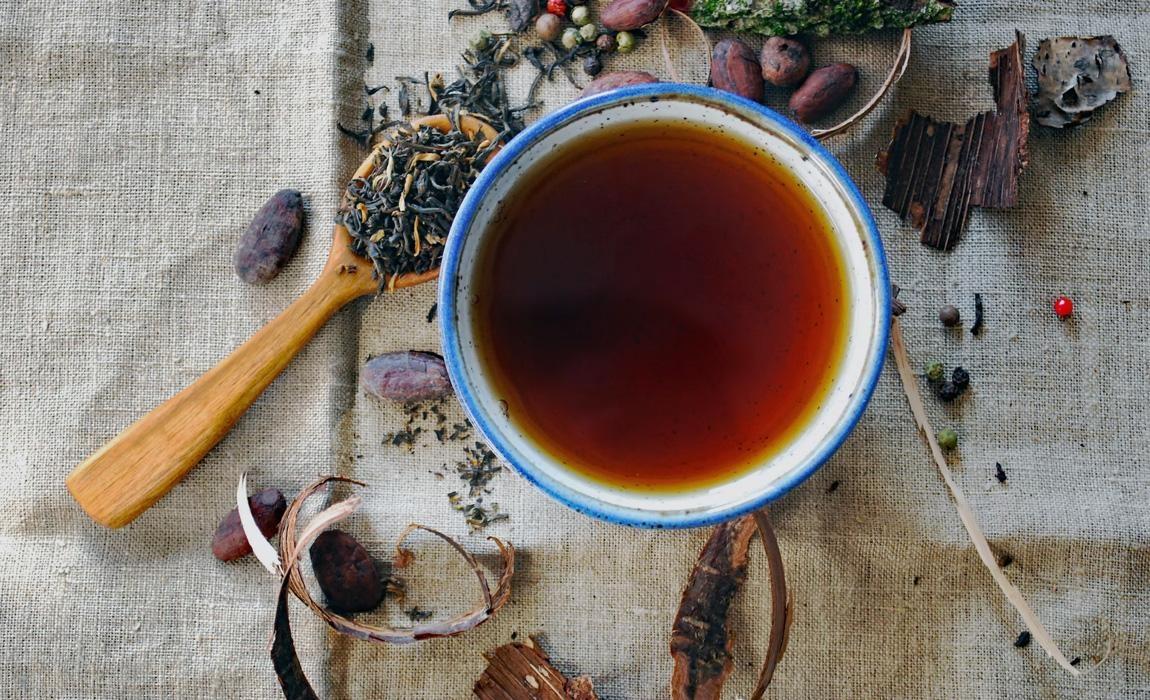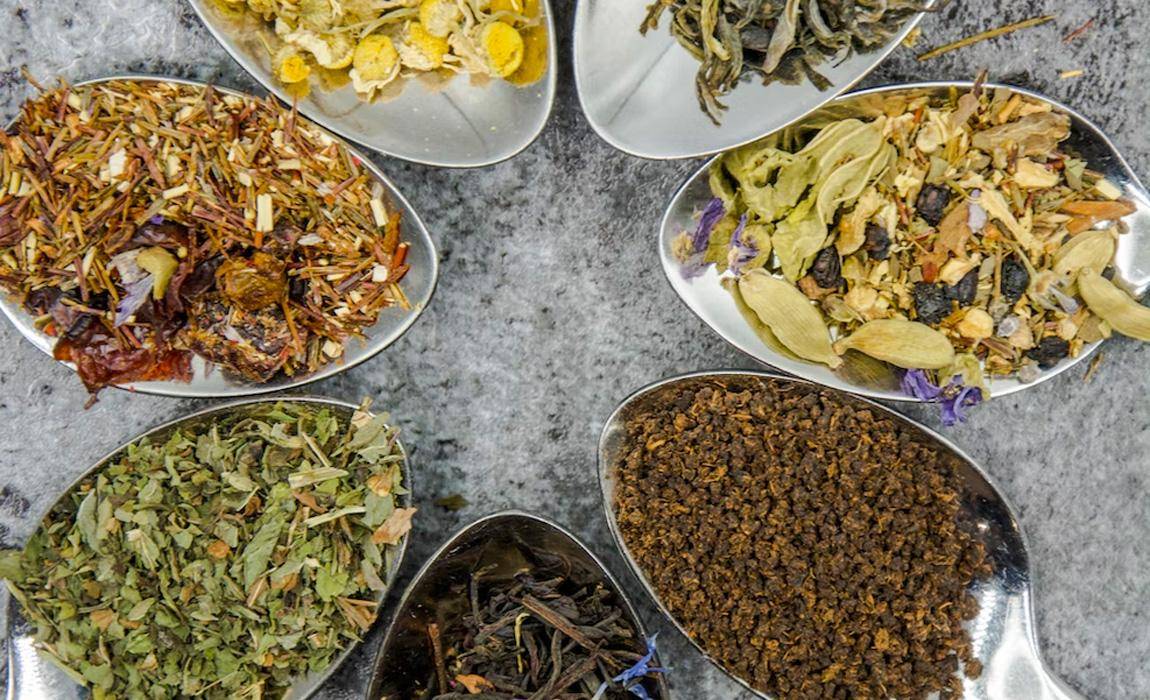Herbal tea can be a great way to relax and unwind after a long day. It's also known for its potential health benefits, making it an attractive option when you're looking for something warm to sip on. But does herbal tea expire? How long will it last on your shelf? This article explores the answers to these questions so you can confidently enjoy your favorite cup of tea.
Whether you've got loose-leaf herbal tea or teabags in hand, knowing how long it lasts is essential to ensure every cup tastes as good as the first. Different herbs may have different storage lives, but some apply across all varieties. Read on for more details about what happens when herbal tea goes bad--and how you can make yours last longer.
Understanding the best practices around storing and enjoying your herbal tea is key to getting the most out of each cup! In this article we'll answer the question: Does herbal tea expire? We'll explore how long it stays fresh and provide tips on keeping your favorite brews tasting their best. So let's dive right in!
Tea, Like Spices, Doesn't Go Bad - It Will Lose Flavor Though
Herbal tea doesn't have an expiry date like most other food products since it's made from dried leaves, herbs, and spices. Different types of tea such as green tea, oolong tea, or black tea will last a long time if they are stored correctly in a dry place away from direct sunlight. The same is true for herbal teas too. Proper storage is the key to having longer shelf life. However, there's really no such thing as expired tea.



Furthermore, tea lovers will be happy to know that the health benefits of tea can still be gained even after many months since the flavor might not remain at its peak freshness over time. Nevertheless, herbal tea does not go bad on your shelf, it simply loses some of its flavor.
When storing your herbal tea for a longer period, ensure that you keep them in airtight containers in cool and dark places so that their quality remains intact and you get all the health benefits without worrying about any contamination caused by poor storage practices.
How Long Will Herbal Tea Last Before Losing Flavor?
When it comes to tea, the shelf life of tea bags and loose leaf teas can vary. The flavor of loose leaf tea will last longer than that of a bagged variety, but both types have an expiration date. For herbal teas, even though they don’t expire in the traditional sense, their freshness diminishes over time resulting in a weaker taste.
Popular herbal teas like chamomile or peppermint tend to remain flavorful for up to one year if stored properly. To ensure your tea maintains its full flavor profile, you should purchase smaller quantities more frequently rather than large amounts at once. Additionally, store your herbal tea away from direct sunlight and air exposure as these elements are detrimental to its freshness.
For optimal storage conditions for all types of herbal tea, keep them between 40°F - 70°F temperatures with little humidity and out of reach from any light source so you can enjoy their unique flavors for as long as possible.
Loose Leaf Tea Lasts Longer Than In A Tea Bag
When it comes to deciding between loose leaf tea and teabags, the answer is clear: loose leaf tea will last longer. There are two major reasons for those - though neither has to do with the actual packaging format.
Loose Leaf Tea Tends To Be Higher Quality
Loose leaf tea is made from whole or broken leaves, while teabags are usually made from low-grade tea fannings or dust. This means that loose leaf tea has more flavor and aroma than teabags, as there is more room for the tea flavors and aromas to infuse into the water. Additionally, since loose leaf tea is of a higher quality than tea bags, it will not deteriorate as quickly over time.
Teabag Teas Tend To Be Less Fresh To Begin With
While whole leaf herbal teas are more commonly found in specialty tea shops and organic grocery stores where they are sold as a premium product, the typical box of teabags may have been waiting for you to open the package for weeks or even months already.
This is obviously a generalization based on practical matters. However, with all things being equal, a tea bag or canister of tea with the same quality of product will last roughly the same time before losing flavor. Furthermore, higher-quality tea bags that are properly sealed can last longer than a canister. This is because once you open the canister, the clock begins ticking and flavor slowly begins to escape.
How To Properly Store Tea So That It Lasts Longer
It is believed that when stored properly, herbal tea can last for up to two years. Lighter oxidized teas such as green tea and yellow tea as well as herbal teas such as chamomile tea, will start to lose flavor in just a few months.
How To Keep Tea Fresh So That The Flavor Lasts Longer
- Store tea in an airtight container in a dark place, away from moisture and heat.
- Keep delicate teas like pu-erh tea or lavender tea in a sealed container, separate from other types of tea.
- Place the container in a dark cabinet or completely opaque container away from anything with a strong odor.
- Try to keep the temperature at room temperature or cooler, but not below 50 degrees Fahrenheit.
- Avoid sudden changes in temperature that can affect the freshness of the tea.
- Don't let your dry leaves of tea oxidize further - store green and greener oolong teas in an airtight container to keep them fresh longer.
When following these guidelines, tea drinkers should be able to enjoy fresh tea leaves at the best quality for a longer period of time. Opting for resealable containers with lids is excellent for keeping air and humidity out while maintaining flavor; perfect if you need to store more than one type of tea at once!
With proper storage techniques, there’s no reason your favorite herbal teas won’t stay delicious and fragrant for months.
Don't Worry Though! There Are Still Uses For Old Tea
Tea bags are surprisingly versatile and can be used for more than just making a cup of tea. Here are some creative ways to use old tea bags that have passed their best by date:
- Fertilize your plants - Tea leaves contain tannic acid, which is great for adding nutrients to the soil and helping plants grow. Simply bury used tea bags at the base of your plants or sprinkle them around the roots.
- Clean mirrors and windows - Rubbing a damp tea bag on glass surfaces will help remove stubborn grease and fingerprints without leaving streaks.
- Neutralize odors - Place a few used tea bags in smelly areas such as garbage cans or refrigerators to absorb bad odors.
- Restore wood furniture - Weak tea can be used to restore a nice shine to wood floors and furniture. Steep a couple of used tea bags in warm water, then use the liquid to wipe down surfaces with a soft cloth.
- Fix puffy eyes - Soak two cotton pads in cooled black or green tea, then place them over your eyes for 10 minutes for an instant de-puffing effect!
- Make a face scrub - (yes - self care is important for men!) Mix together 1 teaspoon of honey, 1 teaspoon of olive oil, and 2 teaspoons of ground oatmeal with cooled black or green tea until it forms a paste-like consistency. Gently rub this mixture onto your face in circular motions before rinsing off with warm water for smooth, glowing skin!
Once Brewed, Herbal Tea Drinks Can Go Bad
So what does this mean for brewed tea? The short answer is yes, all teas can go bad once brewed. This is a different situation than what we've discussed above with regard to the dried tea expiring or going bad.
Once brewed, an herbal tea should be consumed within two hours in order to maintain its original flavor and freshness. If you are storing a pitcher of iced tea in the fridge, you should consume it within five days or bacteria will begin to form.
This is really the only scenario in which tea can go bad. Otherwise, the discussion about expiration dates or best by dates revolves entirely around the tea being enjoyed when it is most flavorful.
In conclusion, herbal tea is much like spices and does not go bad. However, it may lose some of its flavor over time, though storing it properly can help extend the shelf life of any tea.
